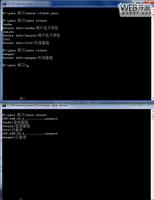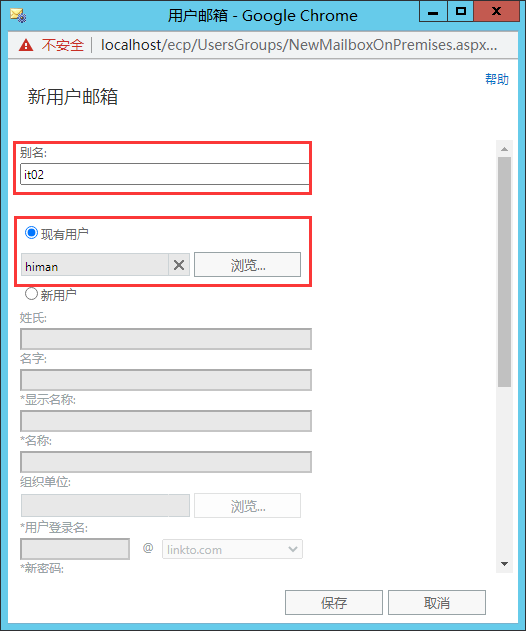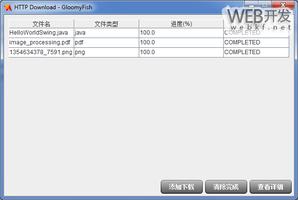Canal使用入门客户端

1.修改POM文件(pom.xml),添加依赖:
<dependency> <groupId>com.alibaba.otter</groupId>
<artifactId>canal.client</artifactId>
<version>1.0.12</version>
</dependency>
2.建立测试类:
TestCanal.java
import java.net.InetSocketAddress;import java.util.List;
import com.alibaba.otter.canal.client.CanalConnector;
import com.alibaba.otter.canal.common.utils.AddressUtils;
import com.alibaba.otter.canal.protocol.Message;
import com.alibaba.otter.canal.protocol.CanalEntry.Column;
import com.alibaba.otter.canal.protocol.CanalEntry.Entry;
import com.alibaba.otter.canal.protocol.CanalEntry.EntryType;
import com.alibaba.otter.canal.protocol.CanalEntry.EventType;
import com.alibaba.otter.canal.protocol.CanalEntry.RowChange;
import com.alibaba.otter.canal.protocol.CanalEntry.RowData;
import com.alibaba.otter.canal.client.*;
public class TestCanal {
public static void main(String args[]) {
// 创建链接
CanalConnector connector = CanalConnectors.newSingleConnector(new InetSocketAddress(AddressUtils.getHostIp(),
11111), "example", "", "");
int batchSize = 1000;
int emptyCount = 0;
try {
connector.connect();
connector.subscribe(".*\..*");
connector.rollback();
int totalEmtryCount = 1200;
while (emptyCount < totalEmtryCount) {
Message message = connector.getWithoutAck(batchSize); // 获取指定数量的数据
long batchId = message.getId();
int size = message.getEntries().size();
if (batchId == -1 || size == 0) {
emptyCount++;
System.out.println("empty count : " + emptyCount);
try {
Thread.sleep(1000);
} catch (InterruptedException e) {
e.printStackTrace();
}
} else {
emptyCount = 0;
// System.out.printf("message[batchId=%s,size=%s]
", batchId, size);
printEntry(message.getEntries());
}
connector.ack(batchId); // 提交确认
// connector.rollback(batchId); // 处理失败, 回滚数据
}
System.out.println("empty too many times, exit");
} finally {
connector.disconnect();
}
}
private static void printEntry(List<Entry> entrys) {
for (Entry entry : entrys) {
if (entry.getEntryType() == EntryType.TRANSACTIONBEGIN || entry.getEntryType() == EntryType.TRANSACTIONEND) {
continue;
}
RowChange rowChage = null;
try {
rowChage = RowChange.parseFrom(entry.getStoreValue());
} catch (Exception e) {
throw new RuntimeException("ERROR ## parser of eromanga-event has an error , data:" + entry.toString(),
e);
}
EventType eventType = rowChage.getEventType();
System.out.println(String.format("================> binlog[%s:%s] , name[%s,%s] , eventType : %s",
entry.getHeader().getLogfileName(), entry.getHeader().getLogfileOffset(),
entry.getHeader().getSchemaName(), entry.getHeader().getTableName(),
eventType));
for (RowData rowData : rowChage.getRowDatasList()) {
if (eventType == EventType.DELETE) {
printColumn(rowData.getBeforeColumnsList());
} else if (eventType == EventType.INSERT) {
printColumn(rowData.getAfterColumnsList());
} else {
System.out.println("-------> before");
printColumn(rowData.getBeforeColumnsList());
System.out.println("-------> after");
printColumn(rowData.getAfterColumnsList());
}
}
}
}
private static void printColumn(List<Column> columns) {
for (Column column : columns) {
System.out.println(column.getName() + " : " + column.getValue() + " update=" + column.getUpdated());
}
}
}
3.运行测试类,可以看到控制台如下输出:
empty count : 1empty count : 2
empty count : 3
4.此时通过SQL对数据进行操作:
INSERT TABLEA (ID, NAME) VALUES (1, "A");INSERT TABLEA (ID, NAME) VALUES (2, "B");
INSERT TABLEA (ID, NAME) VALUES (3, "C");
UPDATE TABLEA SET NAME = "AA" WHERE ID = 1;
DELETE FROM TABLEA WHERE ID = 1;
5.在控制台中可以查看到数据库操作的推送信息:
================> binlog[mysql-bin.000001:13290] , name[test,tablea] , eventType : INSERTid : 1 update=true
name : A update=true
id : 2 update=true
name : B update=true
id : 3 update=true
name : C update=true
================> binlog[mysql-bin.000001:13466] , name[test,tablea] , eventType : UPDATE
-------> before
id : 1 update=false
name : A update=false
-------> after
id : 1 update=false
name : AA update=true
================> binlog[mysql-bin.000001:13874] , name[test,tablea] , eventType : DELETE
id : 1 update=false
name : AA update=false
id : 2 update=false
name : B update=false
id : 3 update=false
name : C update=false
以上是 Canal使用入门客户端 的全部内容, 来源链接: utcz.com/z/512994.html





